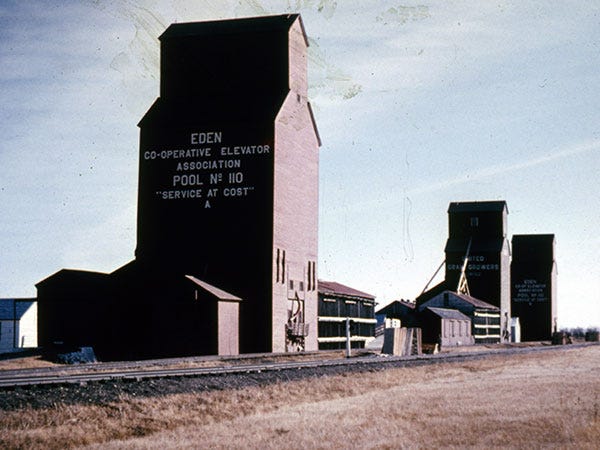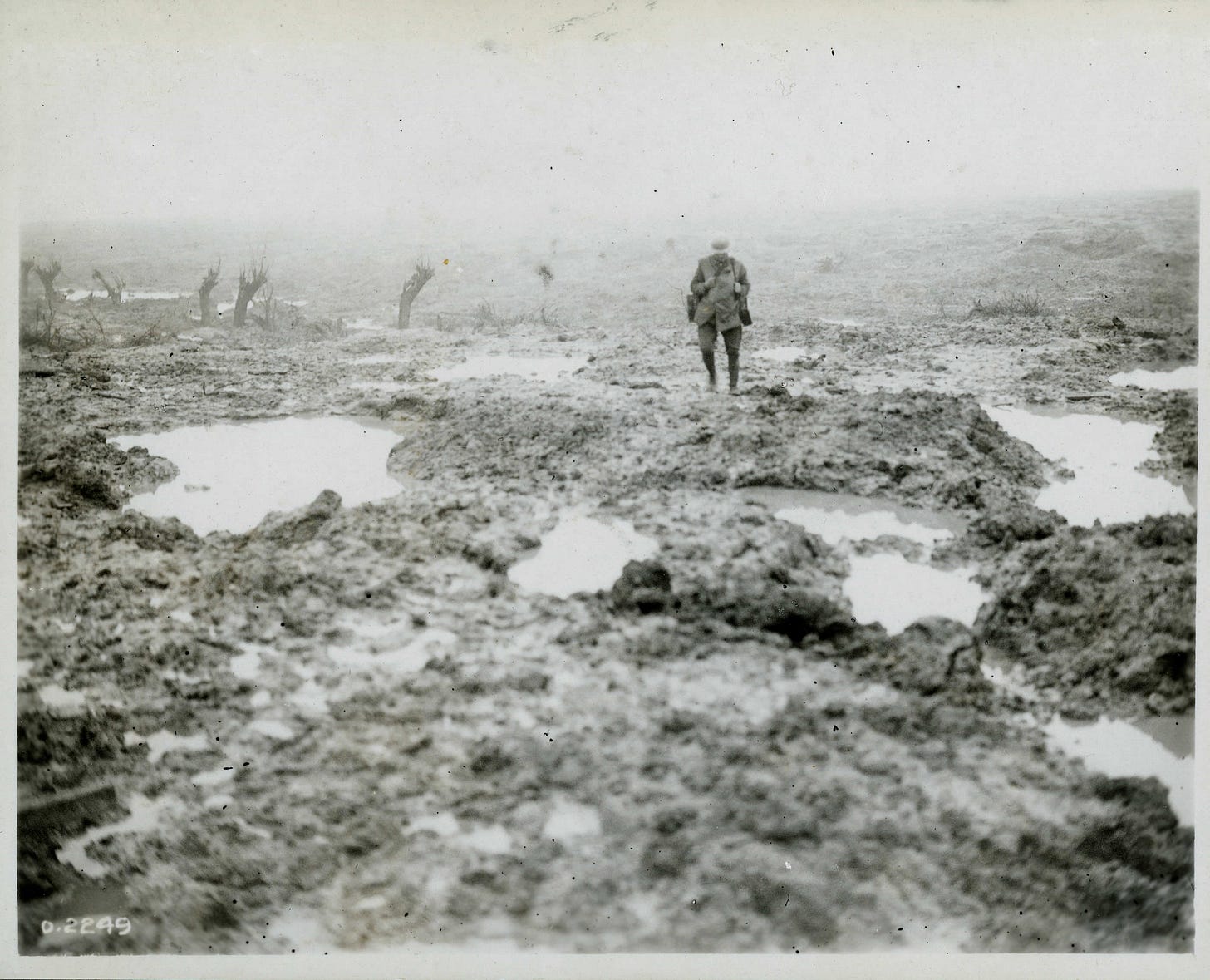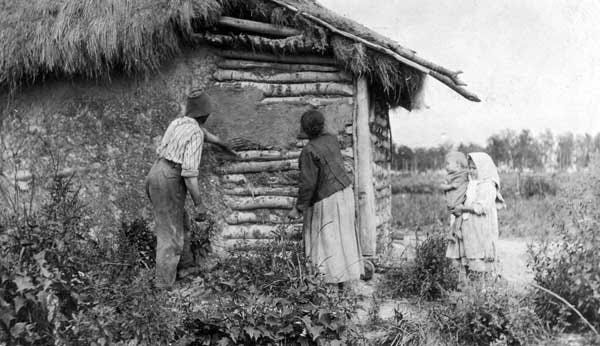Imagined reflections of a Manitoban settler on a life of challenge and loss
This post is a bit different from the other ones I’ve put up so far. It’s the story of my great-great-grandmother, Sarah Jane Suddaby (nee McKague), born in 1868 in Guelph, and told from her perspective using real family stories and historical research. It’s fictional in the sense that I’m not sure whether Sarah Jane would have felt things in this way, but the facts reflect at least some of what happened.
Sarah woke with a start. She’d had a terrible dream that John Robert was late coming home from his rounds for the census.
Sarah tried not to worry on the nights her husband was away, but on a night like the one she’d been dreaming about, she struggled. In her dream, the wind had been battering against the walls of their small Manitoban log house. Although they had done their best to tar and plug every hole and crack, the wind and snow still seemed to find a way in. In her dream, Sarah had pulled many knitted blankets out of the hope chest by the wood stove and wrapped them around her shoulders. If she was this cold inside with a fire in the hearth, what must it be like for John Robert out in the open, stumbling along rutted lanes from homestead to homestead?
Surely, though, he wasn’t going out tonight, she thought. Sometimes John Robert had traveled as far as the Huns Valley, bringing Mr. Levandoski to translate for him. The settlers there would be just as happy to see him tomorrow or the next day once the storm had passed. But she began to picture him set upon it after all, pushing into the gaping darkness and heaving snow. The wind seemed to shake the door. Sharp flurries slipped like a rattling breath beneath it. Just as she pulled the shawl closer around her shoulders and shut her eyes, the door burst ajar.
And then she’d woken up.

It had been years since John Robert had gone out enumerating, and their log house in Eden was long gone. As she lay in their bed, his slow, deep breathing steady beside her, she thought of what had passed since those days. The birth of John Victor. The loss of May and little Edith in that one awful year when the fever ran through the school. Mabel’s wedding to Stanley. She was dressed in white silk, with orange blossoms in her hair. Her sister Ada was in a pale blue dress. On the other side, standing with Stanley, her oldest boy Gordon dressed dashingly and fatefully in his uniform. Two years more and he would be gone. Killed in Ypres.
She learned much later that his death had happened a few days after the main objective of the battle had already been won. Like an afterthought. She imagined his exhilaration as his brethren gained ground and secured the line, and then it was his turn to go up. They hoped to gain a hill. No, barely a hill. A gentle rise in the slope.
The afterthought had not succeeded. Gordon was lost. She would never discover how. First came the letter: he was missing. Finally, the follow-through: presumed dead.

How do you lose someone in 500 meters? That’s all the ground that was taken on November the 10th. A measly 500 meters. Sarah shuddered at the thought. Her 22-year old child gone missing. Over a thousand Canadian men killed, wounded, or missing in a single day. A thousand men for 500 meters. A life for the breadth of a single step.
She imagined it often. Gordon gritting his teeth. His mind perhaps still awakening at 6:50 in the morning, when they had gone over, out of their trench, racing to take the hill. Within the hour, they had arrived, successful. Did Gordon and his friends cheer? Did they feel secure? What happened between 7:30am, when they had “gained all their objectives,” as she had read in Sir Henry Rawlinson’s war diary, and 9:00am, when they found themselves under the fire of the Bosch? Were there moments of quiet? Did he speak to a friend or did he just spend the time catching his breath? The loss of their left flank and the sound of the hurricane artillery must have silenced their hurrahs quickly.
A report said that heavy rain had fallen the night before and that the ground was deep. Is that what it meant to go missing? To sink into mud and forgetting? Is that how you lose someone in 500 meters?
The tributes afterwards had been fine, but rang hollow to Sarah. Thank you for your sacrifice. Thank you for your service. Thank you. Thank you.
John Robert had never been the same. Nor had she. She moved closer to him. She thought again of her husband coming home from an enumeration trip and how she wouldn’t let him into the house until he had been deloused and clear of bedbugs. They would bury his clothes for many days in a hole in the ground until they were sure any creatures he may have picked up along the way were dead and gone. And then they would take them out of the hole and wash them and put them away clean.
She thought of the two neighbours who had helped make the plaster and apply it to the log house John Robert had built for them out in Eden. They gathered mud, sand, ash and mixed it with water, as they had done for their own houses. They showed Sarah how to apply it, thoroughly along the walls, inside and out. They had filled in each gap and cranny and gradually made the cabin whole and complete.
But she knew now that they had missed a spot. There was always going to be a gap. Nothing could fill it. Nothing could wash and clean the stain of loss. Not even if she could bury it deep down within herself for a thousand years. The direction of their family’s history had been irrevocably shifted, like a wave carrying away a bank edge and the waters rushing into the gap.
